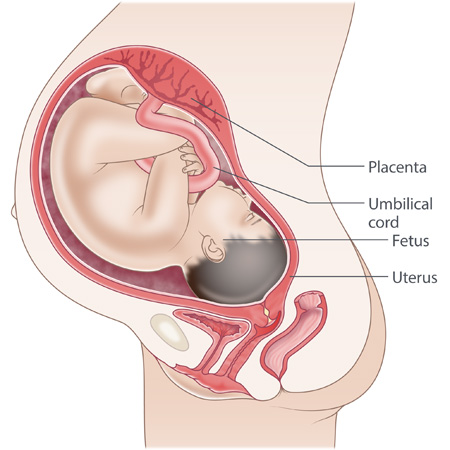You at 40 weeks pregnant
Congratulations, you’ve reached your due date!
If you haven’t gone into labour yet, don’t worry. Very few babies arrive on their due dates, and around half of all pregnancies go past 40 weeks. Even at 41-42 weeks of pregnancy, your baby is still likely to be going very well, although you might be feeling tired and uncomfortable.

Your baby’s movements
Your baby’s movements should continue to be regular and strong. If you notice a change in your baby’s movements or you’re at all worried, call the hospital or your doctor or midwife straight away.
Induction of labour
Labour usually starts naturally between 37 and 42 weeks. But if you’re worried your baby is overdue, you might like to talk to your doctor or midwife about how to get labour going, when induction of labour might be recommended, and what it involves.
If you haven’t had your baby by 41 weeks, you’ll have more frequent checks to make sure your baby is healthy. Your doctor or midwife will talk about your options at this stage, including induction of labour.
Being informed
It’s important for you to feel that you have all the information you need to make decisions that concern you and your baby’s health.
It’s OK to ask:
- why the doctors and midwives think you need an induction
- how an induction will affect you and your baby – the risks and benefits
- what could happen if your baby isn’t induced and you wait for labour to start naturally.
Getting to the hospital or birth centre
You’ll need to get yourself to your public hospital, private hospital or birth centre to have your baby, unless you’ve planned a homebirth. It’s a good idea to plan:
- how you’re going to get there – for example, by car or taxi
- which way you’ll go
- where you’ll park, how much parking will cost, and whether there’s enough petrol in the car
- which entrance to go to (especially at night, because it might be different from the daytime entrance)
- who’ll look after your other children, if you have any.
Your baby when you’re 40 weeks pregnant
The average baby born at term in Australia:
- weighs about 3.5 kg, ranging from 2.9 kg to 4.2 kg
- measures about 50 cm from head to toe, ranging from 46 cm to 56 cm
- has a head circumference of about 35 cm, ranging from 33 cm to 37 cm.
Getting support
Getting formal and informal support can help you adjust to being a parent.
When you’re a new parent, it can really help to feel part of a community:
- Get in touch with other new parents by joining a new parents group or an online forum.
- Get regular information about your baby by subscribing to our emails.
Your child and family health nurse or another community health professional might also be able to put you in touch with other new parents.